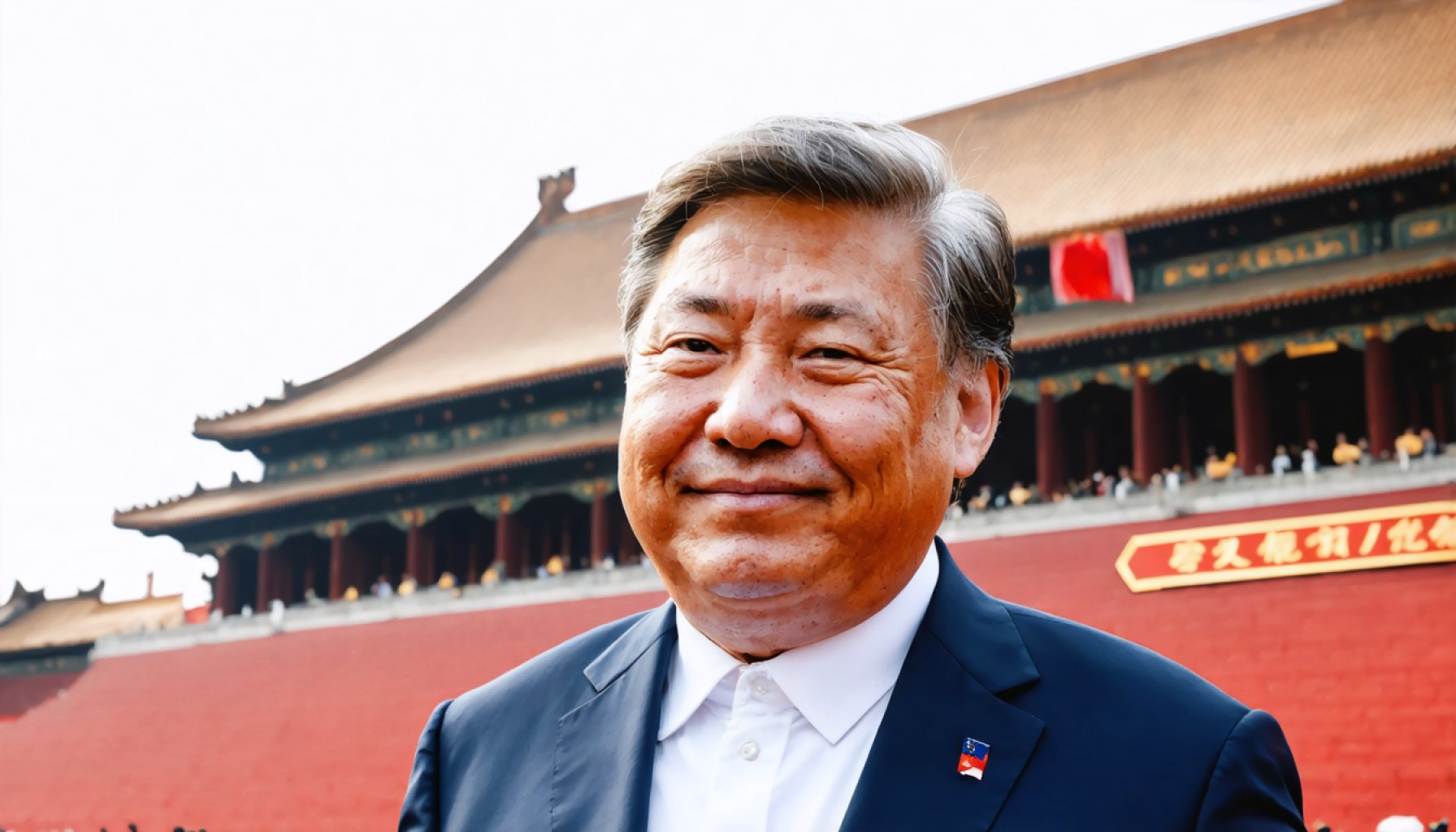- Jiang Chaoliang, a former influential Chinese political figure, is under investigation for corruption by China’s elite watchdog, the Central Commission for Discipline Inspection.
- Jiang’s career included significant roles such as the governorship of Jilin Province and Party Secretary in Hubei, with his most recent position as Deputy Director of the Agriculture and Rural Affairs Committee of the National People’s Congress.
- The investigation is part of Beijing’s ongoing and high-profile anti-corruption campaign, highlighting that no official rank is exempt from scrutiny and potential accountability.
- The case serves as a cautionary tale for political leaders, stressing the importance of integrity and compliance in governance.
- This development underscores the persistent effort to combat graft and misconduct within China’s political landscape.
A storm brews in China’s political landscape as a prominent figure finds himself ensnared in a web of corruption allegations. The Central Commission for Discipline Inspection, the country’s elite watchdog, reveals that Jiang Chaoliang, a once-respected luminary in Chinese politics, is now under intense scrutiny. The investigation into Jiang, accused of severe disciplinary violations, comes as a reminder of the tightrope walked by those in power.
Born in August 1957, Jiang’s career spanned decades of influence and leadership. He held numerous influential positions: he ascended from the governorship of Jilin Province to the role of Party Secretary in Hubei. His journey through the ranks of power seemed unstoppable until now.
Jiang, who recently served as the Deputy Director of the Agriculture and Rural Affairs Committee of the National People’s Congress, is the latest in a series of high-profile figures caught in Beijing’s anti-corruption drive. This relentless campaign underscores a key message: no rank is immune from oversight and accountability.
The unfolding events are a stark illustration of the ever-watchful eye of Beijing’s disciplinary apparatus. Jiang’s predicament serves as a stark cautionary tale for others in high office—emphasizing that integrity and compliance are paramount in the high-stakes world of governance.
The timing of this probe reverberates across political spheres, sending a clear signal: the campaign against graft and misconduct remains vigorous and unfaltering. For citizens and officials alike, this case is a vivid reminder of the shifting sands in China’s political and bureaucratic corridors, where power and peril often dance a delicate tango.
Corruption Allegations and Their Impact: Navigating the Complex World of Political Accountability
How-To Steps & Life Hacks: Navigating Political Scandals
1. Stay Informed: Regularly check reliable news outlets for updates on political situations. Trusted sources like the BBC or Reuters can offer balanced views.
2. Analyze the Impacts: Consider how political scandals might affect governance, policy-making, and the economy. Research past incidents for patterns or outcomes.
3. Critical Thinking: Approach news with a critical mind, discerning between facts, opinions, and propaganda.
Real-World Use Cases: Learning from China’s Anti-Corruption Efforts
China’s aggressive anti-corruption drive is a lesson for global governance. Countries can implement similar oversight bodies and integrity commissions to boost transparency. For instance, the Singaporean model of robust anti-corruption measures has been effective in maintaining a corruption-free government.
Market Forecasts & Industry Trends: Impact on Business Environment
Political instability and corruption crackdowns can affect market confidence and foreign investments. Analysts suggest monitoring China’s economic policies post-scandal for any shifts. According to the World Bank, political stability and absence of corruption are key drivers for attracting investments and ensuring sustainable growth.
Reviews & Comparisons: Global Anti-Corruption Strategies
Comparatively, China’s approach is top-down and highly punitive, focusing on high-ranking officials. This contrasts with countries like Denmark or New Zealand, where systems prioritize prevention and transparency from the grassroots level up. Transparency International’s Corruption Perception Index provides insights into the effectiveness of different anti-corruption frameworks globally.
Controversies & Limitations: Challenges in Anti-Corruption Campaigns
A major controversy in anti-corruption efforts is the potential use of such campaigns to sideline political rivals. Critics argue that without independent checks, the proceedings could lack fairness. Similarly, overemphasis on punitive measures without systemic changes can fail to address root causes of corruption.
Security & Sustainability: Building Integrity in Governance
From a security perspective, anti-corruption measures can strengthen a nation’s internal security by ensuring that all dealings are transparent and accountable. Long-term sustainability requires integrating technology for transparent e-governance, as seen in Estonia’s highly digital government services.
Insights & Predictions: China’s Political Future
Jiang Chaoliang’s case highlights that Beijing’s anti-corruption efforts are unlikely to wane. Analysts predict continued vigilance as China maintains its zero-tolerance policy toward graft. The campaign might also evolve to incorporate advanced technologies such as AI to monitor financial transactions more effectively.
Tutorials & Compatibility: On Fighting Corruption
– Implementing Compliance Training: Organizations can institute regular compliance training to promote integrity.
– Use of Technology: Leveraging data analytics to detect anomalies and irregularities in transactions can preempt corruption attempts.
Pros & Cons Overview: Anti-Corruption Drives
Pros:
– Deters illegal activities by instilling fear of repercussions.
– Promotes transparency and integrity.
– Boosts international confidence in governance.
Cons:
– Risk of misuse for political gain.
– Can create fear-driven environments, hindering effective decision-making.
– May focus excessively on punishment rather than prevention and education.
Actionable Recommendations
– Promote Ethical Practices: Establish clear codes of conduct in all organizations.
– Leverage Technology: Use blockchain and AI to track transactions and reduce opportunities for corruption.
– Educate Stakeholders: Create awareness programs to inform the public about their role in fighting corruption.
For more insights into global governance and the fight against corruption, visit the Transparency International website for comprehensive resources and analysis.
Enhancing transparency and integrity in governance through comprehensive anti-corruption strategies not only safeguards national security but also fosters economic growth and stability.
